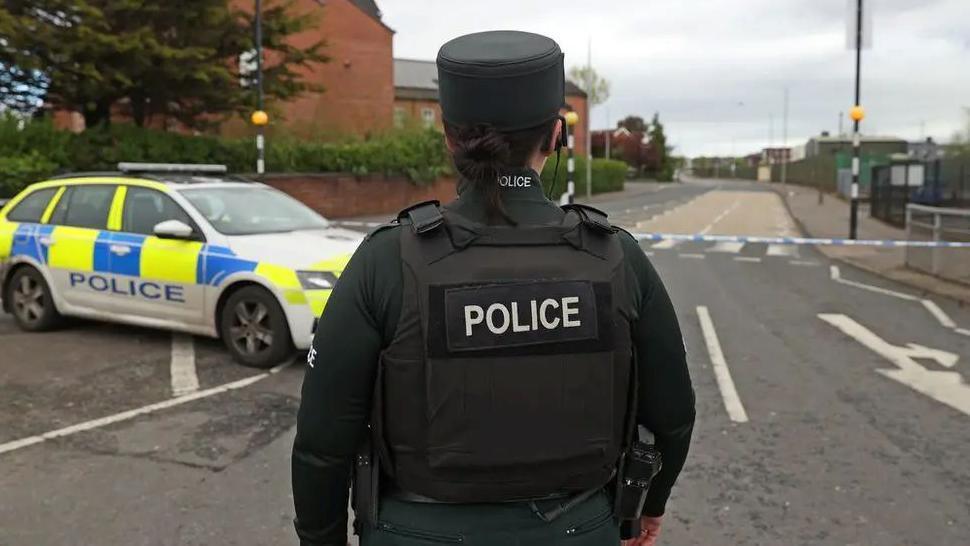PSNI data breach cases begin at Belfast High Court

The PSNI accidentally released details of its 9,400-strong workforce in response to a Freedom of Information request.
- Published
The High Court in Belfast has begun hearing claims for damages by six people impacted by the major data breach by the Police Service of Northern Ireland (PSNI) in 2023.
They have been selected as test cases from action being taken by thousands of officers and staff who are pursuing compensation.
It is hoped the outcome will act as a "guide" for all settlements.
The PSNI has accepted liability for the breach, but cannot currently fund the compensation bill.
The government has turned down a request for £119m made on its behalf by the Department of Finance at Stormont to address the issue.
The data breach occurred when the PSNI accidentally released details of its 9,400-strong workforce in response to a Freedom of Information request.
The details were published on a website and later obtained by dissident republicans.
The case is going ahead after the PSNI was unable to finance an out-of-court "universal offer" to those affected.
The High Court is expected to hear evidence over a number of weeks.
'No one-size-fits-all approach'
Opening the case, a lawyer for the six claimants said: "The seriousness of the breach and the risks to individuals will be readily appreciated by the court."
The majority of claimants are being represented by Edwards Solicitors.
Speaking ahead of the case, its head of litigation Philip Gordon said: "These test cases are the next step in pursuing compensation for our clients.
"There will be no one-size-fits-all approach and compensation levels will depend on individual circumstances.
"But these cases should give the parties some guidance as to what to expect."
The case continues.